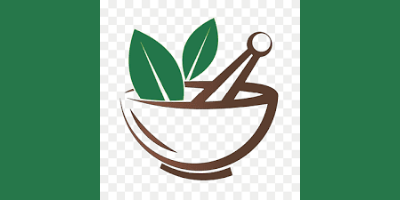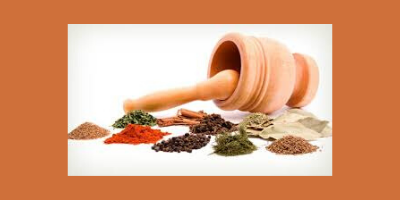Food and Health:
Cereals In The Holy Qur'an
“And eat and drink but do not waste by extravagance, certainly He (ALLAH) does not like those who waste by extravagance”. Quran(7:31)
The health of our physical body is vital to our entire well-being. According to Islamic medicine, physical ailments have been thought to arise as a result of accumulation of excess waste substances in the body. Over eating, improper food choices and an unhealthy lifestyle were regarded as the sources of accumulated morbid matter and it was believed that when the digestion process became overwhelmed, disease resulted. These facts are today, subhanAllah, reinstated by various scientific medical bodies, centuries after Islamic scholars and physicians opined.
Prophet Mohammed sal Allahu Alaihi wa sallam used and advocated different types of remedies, both natural and divine for various ailments and conditions. According to a well-known hadith the Prophet sal Allahu Alaihi wa sallam said, “No human fills a vessel worse than his own abdomen. A few bites are enough for man to keep his body upright, but if it is indispensable then a third for his food, a third for his drink and a third for his breath.” ( Sahih Bukhari, Muslim and Tirmidhi)
“O you messengers! Eat of the good foods which Allah has made legal (meat of slaughtered eatable animals, milk products, fats, vegetables, fruits, etc), and do righteous deeds. Verily, I am well-acquainted with what you do”.
Quran (23:51)
Good foods whether they are grains, vegetables, fruits or animal derivatives (meat and milk products) contain all the nutrients we need. The good foods are those that have not been processed and retain all their original nutrients. Foods like jams, fruit preserves are empty calorie foods lacking essential nutrients. Better substitutes would be fresh whole fruits. It is also suitable for those trying to lose weight.
Let us use the food pyramid to start analyzing the benefits of foods from different food groups and the conformity we find in the Holy Quran and the hadith of their use in our diets.
Starting with the base level of the pyramid we have breads and cereals that have been advised by doctors and nutrition therapists to be consumed in a larger proportion of servings than other food groups. For thousands of years, cereals have formed the staple diet essential for human life. Grains, wheat and sprouts have been mentioned in the Quran numerous times.
“And we have sent down from the rain-laden clouds abundant water, that We may produce therewith corn and vegetation, and gardens of thick growth”. Quran (78:14-16)
The nutritional benefits of grains are numerous, providing us with carbohydrates, B-vitamins, fibres, iron, magnesium and zinc.
Barley was once the main cereal popularly used in the Arabian Peninsula. It has a very low-glycemic index (causes slow rise of sugar in the blood after consumption). These cause low levels of insulin release in the blood, thus stabilizing the hormone, controlling hunger pangs and reducing obesity which makes it an ideal food for those suffering from diabetes.
Authentic hadiths have shown that the Messenger of Allah sal Allahu Alaihi wa sallam was particularly fond of barley porridge. Aisha, the wife of the prophet sal Allahu Alaihi wa sallam said, “When a family member of the Prophet’s house-hold would fall sick, he would order barley soup and the invalid would be urged to have some of it”.
The Prophet used to say, “It strengthens the heart of the sad person and relieves the heart of illness, just as one of you would wash dirt off her face with water”. (Tirmidhi and Ahmed)
Barley soup can be easily prepared by boiling one portion of barley grains in five portions of water under moderate heat until the water is reduced to two-fifths of its volume.
It is easily available in the supermarkets as whole grain barley, polished barley, barley flakes, and barley flour and barley syrup.
Wheat is more popular among all culture groups and communities and is widely harvested throughout the world. Whole wheat is the most nutritious form, high in fibre, mineral and vitamin content. It is packaged in many forms like wheat flour which is widely used in cakes and breads, semolina- mainly used in porridge and puddings, couscous- traditionally used in Moroccan cooking and pasta.
Rice is a common grain forming the staple diet of many people across the world. There are many types of rice and their nutritional value depends on the degree of refining and milling. Of the most nutritious forms are red rice and brown rice which are least refined and contains higher fiber, mineral and B-vitamin content than white rice. It also helps those who are trying to control weight gain.
Corn, is a rich source of carbohydrates, fibre and minerals like potassium, magnesium and phosphorus. They are available as are corn flakes- which make for a nutritious breakfast added with milk and fruit, sweet corn-used widely in soups and salads and corn meal- used in muffins, cakes and breads.
Popcorn can especially turn out to be a wonderfully nutritious snack provided it is consumed without too much salt and butter.
Oats are high in vitamin E, essential fatty acids and iron, making it an ideal food for those suffering from high cholesterol levels, and are an excellent source of carbohydrates for diabetics due to its low-glycemic index.
Other wheat grain sources like rye, millet, quinoa and buck-wheat are low in gluten and high in fibre value.
“The likeness of those who spend their wealth in the way of Allah is as the likeness of a grain (of corn); it grows seven ears and each ear has a hundred grains. Allah gives manifold increase to whom he pleases. And Allah is all-sufficient for his creature’s needs, All-knower”. Quran (2:261)
It is a fact that curing the ills of the physical body without curing those of the heart and soul is an effort duly wasted. And the best remedy for curing the ills of the soul and heart is through recitation of the divine revelations of the Holy Quran.
—
Ammarah
Radio Islam
+27118547022
ammarah@radioislam.co.za
www.radioislam.co.za





0 Comments